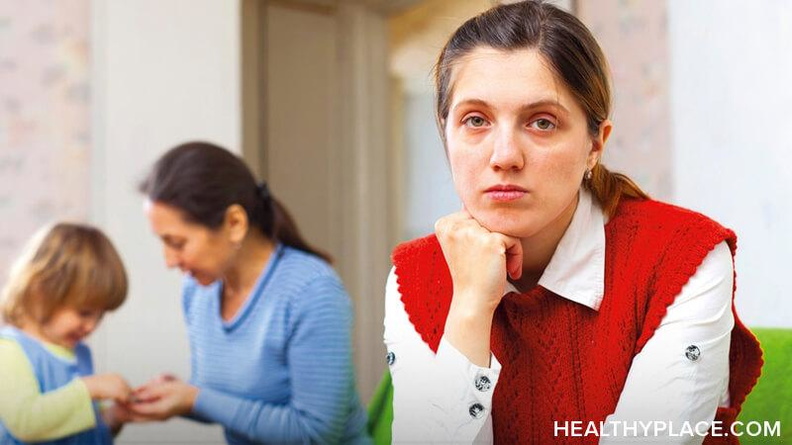Parental Guilt and Kids with Special Needs

Many parents feel guilty upon discovering they have a special needs child. Learn how parental guilt plays out for both parents and children.
For the most part, pregnancies are met with the anticipation of a good delivery and healthy baby. Upon delivery, parents do a quick scan of the child checking for ten fingers, ten toes and if unknown, a check of the genitals to determine gender. A positive check is met with a sense of relief and gracious thanks for such beautiful a child.
However, for any number of reasons, not all children enter the world equally well-equipped. They may have physical or developmental challenges that become immediately known or known within the first year of life. Such children are identified as having special needs. These are the kids whose development will not follow the normal developmental curve and will require special services to adapt and overcome.
In such circumstances, parents undergo their own psychological and emotional adjustment as they adapt to the loss of the well-child as expected and learn to provide for their child's extraordinary needs ("Discovering You Have A Special Needs Child: You Are Not Alone").
Parental Guilt Causes Extremes in Raising Special Needs Kids
Some parents may feel or may actually be complicit in their child's special needs. Drug and alcohol abuse are known contributors to developmental disorders, whereas other unforeseen circumstances beyond anyone's control may contribute to a child's special needs. Regardless, there are a good many parents who whether reasonably or not, feel complicit in their child's disorder and suffer tremendous guilt as a result. This, in turn, leads some parents to heroic attention to meeting their child's needs while others may place minimal expectations on their child, favoring instead to pamper them so as to atone for their disability or act with a sense of pity.
Those parents who undertake heroic actions are at risk of burnout themselves. Further, marriages under such strain are at risk of dissolving thus actually placing an even greater burden of care on the primary caregiver, which then intensifies their risk of burnout.
Those parents who opt to pamper their child with special needs and hold minimal expectations are at risk of their child not fully developing to potential. Further and similar to parenting well-children with minimal expectations, there is a risk of contributing to poor behavior and poor socialization. Even kids with special needs can be spoiled, become self-righteous and behaviourally unmanageable from a lack of reasonable expectations.
Sometimes within the same family, the parents are at odds with each other. One parent may feel a need to pamper, or to provide heroic actions and the other will try to balance things out by taking an opposite approach. Hence the parent that pampers is met by the other parent with overly high expectations. Clearly then, there is a setup for parental conflict leading to a shaky marriage, not to mention mixed messages for a child with special needs, who more than anything else, needs a consistent message.
Parenting children with special needs requires a presence of mind unlike that of parenting children whose development follows a normal path. As if issues of guilt, upset and loss wasn't enough, there is also the fatigue that comes with the continuous supervision these children require, often in the face of limited support.
Who Survives The Stress of Parenting A Special Needs Child?
Those parents who tend to fare better in their own right share certain traits. They examine their own feelings with a view to managing them in a way to avoid interference with the care of their children and they learn to pace themselves, even if it means somewhat slower progress for their children.
While all children need their parents, kids with special needs often need their parents longer... a lot longer.
If you are struggling, meeting the needs of your child or if caring for your child is hurting your marriage, consider counseling. Look at your feelings with the view to helping you cope and respond better. In the long run, as you invest in yourself, you are better able to support your child, now and for the future.
About the author: Gary Direnfeld is a social worker. Courts in Ontario, Canada, consider him an expert on child development, parent-child relations, marital and family therapy, custody and access recommendations, social work and an expert for the purpose of giving a critique on Section 112 (social work) report.
APA Reference
Staff, H.
(2022, January 17). Parental Guilt and Kids with Special Needs, HealthyPlace. Retrieved
on 2025, April 18 from https://www.healthyplace.com/parenting/stress/parental-guilt-and-kids-with-special-needs



